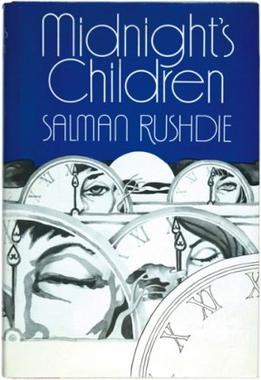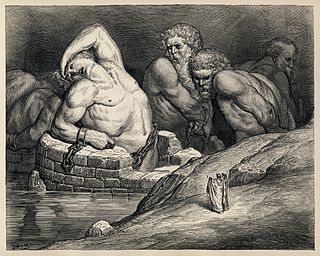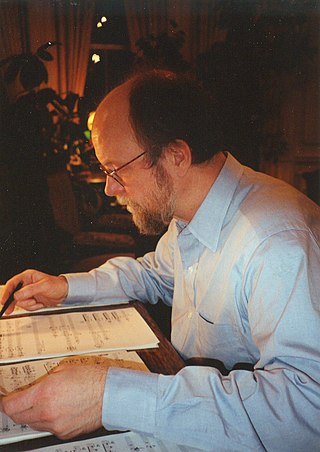
Sir Ahmed Salman Rushdie is an Indian-born British-American novelist. His work often combines magic realism with historical fiction and primarily deals with connections, disruptions, and migrations between Eastern and Western civilizations, typically set on the Indian subcontinent. Rushdie's second novel, Midnight's Children (1981), won the Booker Prize in 1981 and was deemed to be "the best novel of all winners" on two occasions, marking the 25th and the 40th anniversary of the prize.

Abu Ja'far Harun ibn Muhammad al-Mahdi or simply Harun ibn al-Mahdi, famously known as Harun al-Rashid, was the fifth Abbasid caliph of the Abbasid Caliphate, reigning from September 786 until his death in March 809. His reign is traditionally regarded to be the beginning of the Islamic Golden Age. His epithet al-Rashid translates to "the Orthodox", "the Just", "the Upright", or "the Rightly-Guided".

The Remains of the Day is a 1989 novel by the Nobel Prize-winning British author Kazuo Ishiguro. The protagonist, Stevens, is a butler with a long record of service at Darlington Hall, a stately home near Oxford, England. In 1956, he takes a road trip to visit a former colleague, and reminisces about events at Darlington Hall in the 1920s and 1930s.

Shame is Salman Rushdie's third novel, published in 1983. This book was written out of a desire to approach the problem of "artificial" (other-made) country divisions, their residents' complicity, and the problems of post-colonialism when Pakistan was created to separate the Muslims from the Hindus after Britain gave up control of India.

Midnight's Children is a 1981 novel by Indian-British writer Salman Rushdie, published by Jonathan Cape with cover design by Bill Botten, about India's transition from British colonial rule to independence and partition. It is a postcolonial, postmodern and magical realist story told by its chief protagonist, Saleem Sinai, set in the context of historical events. The style of preserving history with fictional accounts is self-reflexive.

The Satanic Verses is the fourth novel of British-Indian writer Salman Rushdie. First published in September 1988, the book was inspired by the life of the Islamic prophet Muhammad. As with his previous books, Rushdie used magical realism and relied on contemporary events and people to create his characters. The title refers to the Satanic Verses, a group of Quranic verses about three pagan Meccan goddesses: Allāt, Al-Uzza, and Manāt. The part of the story that deals with the "satanic verses" was based on accounts from the historians al-Waqidi and al-Tabari.

Haroun and the Sea of Stories is a 1990 children's novel by Salman Rushdie. It is Rushdie's fifth major publication and followed The Satanic Verses (1988). It is a phantasmagorical story that begins in a city so sad and ruinous that it has forgotten its name.

Shalimar the Clown is a 2005 novel by Salman Rushdie. The novel took Rushdie four years to write, and was initially published on 6 September 2005 by Jonathan Cape. Shalimar the Clown derives its name from Shalimar Gardens, in the vicinity of Srinagar. Srinagar is one of several Mughal Gardens, which were laid out in several parts of undivided India when the Mughals reigned over the subcontinent. Shalimar is also the name of one of the characters featured in the novel. Shalimar the Clown won the 2005 Vodafone Crossword Book Award and was one of the finalists for the 2005 Whitbread Book Awards.

The Titan's Curse is an American fantasy-adventure novel based on Greek mythology written by Rick Riordan. It was released on May 1, 2007, and is the third novel in the Percy Jackson & the Olympians series and the sequel to The Sea of Monsters. It is about the adventures of the 14-year-old demigod Percy Jackson as he and his friends go on a dangerous quest to rescue his 14-year-old demigod friend Annabeth Chase and the Greek goddess Artemis, who have both been kidnapped by the titans.

Grimus is a 1975 fantasy and science fiction novel by Salman Rushdie. It was his literary debut.

The Satanic Verses controversy, also known as the Rushdie Affair, was a controversy sparked by the 1988 publication of Salman Rushdie's novel The Satanic Verses. It centered on the novel's references to the Satanic Verses, and came to include a larger debate about censorship and religious violence. It included numerous killings, attempted killings, and bombings by perpetrators who supported Islam.
The Jaipur Literature Festival, or JLF, is an annual literary festival which takes place in the Indian city of Jaipur each year in the month of January. It was founded in 2006.
Saleem Sinai is the protagonist of the Booker Prize-winning novel Midnight's Children by Salman Rushdie. His life is closely intertwined with the events that take place in his homeland of pre- and post-colonial India, and newly created Pakistan and Bangladesh. He is born at the moment in time when India and Pakistan emerge from British rule and lives during the new tumultuous struggles that engulf the new nations following 15 August 1947. Sinai embodies these physical struggles and rifts during, and serves as a metaphor for, the spiritual, religious, political and intellectual traumas of the young nations.
International Guerrillas is a 1990 spy action film from Pakistan, originally released in the context of the Satanic Verses controversy. The movie portrays Salman Rushdie as its main villain. The film was made in the Urdu language; it also features several musical numbers including songs and dances.

The familiar name and large size of the Titans have made them dramatic figures suited to market-oriented popular culture.

The figure and name of Prometheus from classical mythology has appeared in various art and literature.

The Tailor of Panama is a 1996 novel by British writer John le Carré. A 2001 film was released based on the novel.

Quichotte is a 2019 novel by Salman Rushdie. It is his fourteenth novel, published on 29 August 2019 by Jonathan Cape in the United Kingdom and Penguin Books India in India. It was published in the United States on 3 September 2019 by Random House. Inspired by Miguel de Cervantes's classic novel Don Quixote, Quichotte is a metafiction that tells the story of an addled Indian-American man who travels across America in pursuit of a celebrity television host with whom he has become obsessed.

Haroun and the Sea of Stories is an opera in two acts by American composer Charles Wuorinen, based on the children's novel of the same name by Salman Rushdie, with a libretto by James Fenton. It was premiered at the New York City Opera in 2004.

Victory City is a novel by Salman Rushdie published in February 2023. It is Rushdie's fifteenth novel.















